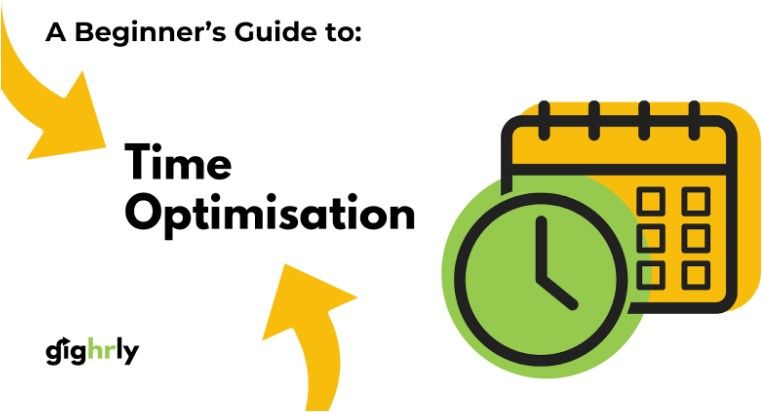Understanding Interim, Fractional, and Project Roles: Plus, What IR35 Means for Interim Workers
If you’re an independent professional or thinking about stepping into the world of contract work, you’ve likely heard terms like Interim, Fractional, Project-Based, and IR35 thrown around. And if you're a prospective client, you may be a tad confused by all these different labels. So in this blog we'll aim to break this down for you so you can be 'gig aware' :)
While they may all sound similar and they're all gig-work in some way, they mean very different things. And understanding these differences is essential, especially when it comes to how you structure your contracts and what tax implications might apply.
So let’s break it all down.
What’s an Interim Role?
An Interim role is a temporary position taken on by a highly skilled professional to bridge a gap or manage a critical transition in an organization. These roles often fill leadership or senior-level vacancies for a fixed period. For example, you might see roles such as Interim HR Director or Interim CFO.
Inside IR35 vs. Outside IR35 for Interim Roles
The IR35 rules were designed to prevent "disguised employment," where contractors work in a manner similar to employees to avoid paying tax and National Insurance.
Inside IR35:
If your interim contract is deemed to be “inside IR35,” it means you’re considered to be operating like an employee. The organization is responsible for deducting tax and National Insurance from your pay before you receive it. Essentially, you’re taxed like an employee.
Example: You have fixed working hours, work under the direct control of the company, and use their tools and equipment.
Outside IR35:
If your contract is “outside IR35,” you’re seen as genuinely self-employed. You can pay yourself through dividends and manage your own tax arrangements.
Example: You run your own business, control how and when you work, and provide your own tools.
Key takeaways
If you want more flexibility and better tax advantages, ensuring your contract is outside IR35 is ideal.
However, being inside IR35 is often more common for interim roles where you’re embedded in the day-to-day operations of an organization.
It's always best to look at each of the gigs individually before making a full assessment of whether a role is inside or outside of ir35.
What’s a Fractional Role?
A Fractional Role is where a senior professional works with multiple organisations, offering their expertise on a part-time, ongoing basis. Instead of working full-time for one company, they “fraction” their time across several. Think of it like having access to a highly experienced executive, but only for a few days a month.
Fractional roles typically focus on strategic guidance/strategy formulation rather than operational delivery, making them ideal for start-ups or SMEs that can’t afford, or don’t need, a full-time executive.
Examples of Fractional roles:
Fractional Chief People Officer
Fractional HR Director
Fractional Chief of Staff
How is fractional different from an interim role?
Ongoing vs. Time-limited: Fractional roles are often ongoing, whereas interim roles have a clear start and end date.
Multiple clients vs. One client: Fractional professionals typically work with multiple companies, while interim roles are focused on one company at a time.
Strategic vs. Operational: Fractional professionals often focus on providing strategic advice, while interim roles tend to involve operational responsibilities too.
How is a Project Role Different?
A project-based role is tied to delivering a specific outcome or piece of work within a set timeframe. It’s not about filling a position, it’s about achieving a goal. Once the project is completed, the role ends.
Examples of Project Roles:
- Implementing a new HR information system
- Leading an organisational redesign
- Running an employee engagement initiative
Key distinctions between Project and Interim roles:
Deliverable vs. Operational Continuity: Project roles focus on delivering a result, while interim roles are about maintaining continuity during a transition.
Clear Scope vs. Evolving Needs: Project roles have a defined scope and deliverables, while interim roles can evolve as the organization’s needs change.
Tax Implications: Like interim roles, project roles can also fall inside or outside IR35 depending on how the work is structured.
Wrapping Up
Whether you’re considering an interim, fractional, or project-based role, understanding the nuances can help you choose the right fit for your lifestyle, career goals, and tax status.
Interim roles offer a chance to take on senior positions temporarily - watch out for IR35.
Fractional roles let you offer your expertise across multiple businesses on an ongoing basis.
Project roles are about delivering results for a specific initiative.
Each option has its own benefits and considerations, but clarity on your role structure and tax status is key to success as a contractor or consultant.
If you're a client seeking to establish the best way to structure your gig requirement complete our enquiry form via https://www.gighrly.com/for-clients.
And if you're a senior HR pro needing some support and additional resources, head over to our gighrly club - or if you haven't already joined, find out how at https://www.gighrly.com/for-HRpreneurs.
Happy Gig-Making and Gig-Seeking!

Follow us
Copyright of gighrly TM © a trading name of Nu Leaf Ltd. Company no 07001744


